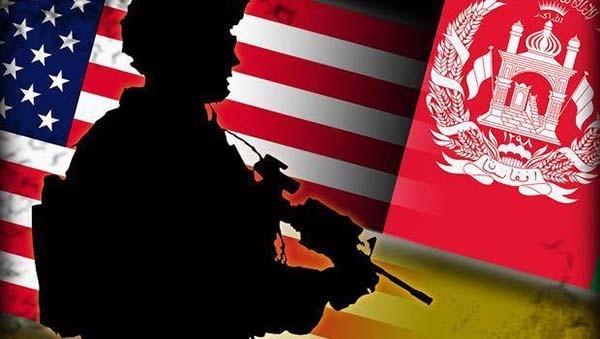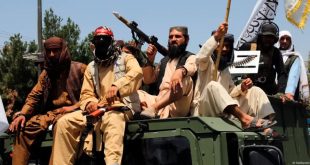By Mansoor Faizy-KABUL: After last year’s controversial presidential election, finally Ashraf Ghani was declared as President and Dr. Abdullah Abdullah as Chief Executive Officer (CEO) of Afghanistan—as part of the deal between the two teams.
Afghans signaled optimism about their future after the formation of the National Unity Government. Security, employment, peace and improvement in living standards were and are major aspirations as well as expectations of the public. As a matter of fact, security and peace are on top of the expectations’ list.
Keeping in view public concerns, President Ghani without much delay has signed the Bilateral Security Agreement (BSA) with the United States of America in a bid to bring peace and stability to the war-torn country, Afghanistan.
Unfortunately, the hopes were dashed to the ground when no salvation was found in the security agreement, because the BSA still remains just a piece of signed paper and there is no end in sight to the ongoing bout of violence. Insurgent groups are trying to outmaneuver the Afghan and foreign forces. The terror groups have fixed eyes on northern parts of the country and Central Asia as well.
Terror attacks not only annoying security forces in Badakhshan, Kunar, Takhar, Sar-e-Pul, Faryab, Samangan, Badghis, Ghazni, Helmand, Nangarhar and Zabul provinces, but also forced locals to leave their homes to save their skins.
The Taliban insurgents are determined to fight to the bitter end to seize control of different strategically important districts. Reportedly, fierce clashes between Afghan security forces and insurgents are continue in more than 10 provinces.
For Afghans the current situation is nerve-wrecking. However, they cannot do anything except question effectiveness of the BSA and the Afghan government’s counterterrorism policies. Security officials in the northern provinces times and again expressed their concerns over increasing numbers of armed groups who are hell-bent on challenging the government’s writ. News headlines about exponentially growing insecurity and rise of the Islamic State or Daesh have puzzled both the Afghan lawmakers and analysts alike. They lambasted the government for failure to notice the emergence of the Daesh and to prevent the insurgents from launching mass attacks.
- Nadeem Alizai, a security affairs analyst, said that Kabul was pinning high hopes on the Bilateral Security Agreement but now Afghans are losing it. The future of the agreement is shrouded in uncertainty.
The new government was confident that the agreement would help in overcoming terrorism and bringing peace back to the country. However, the reality is quite different and frustrating. Neither the US is supportive in quelling the internal nor external threats nor the ground for peace talks has been prepared, he said, adding, “Kabul is left in the lurch by the superpower, because Afghan leaders are approaching China, Pakistan and Saudi Arabia for peace. It is China that is helping the peace process more than the US while putting crippling pressure on Pakistan to normalize relations with Afghanistan and persuade the Taliban to sit on the table of talks.”
Alizai termed the US foreign policy complicated and said that even American politicians don’t know what exactly the Obama administration wants in Afghanistan. “There is a common perception in Asia that on one hand the US helps Afghan government on minimal level to chase terrorists, but on the other fueling insecurity in the country by supporting militants covertly,” he said.
The analyst went on saying that many believe the US has not been sincere in fighting militancy during the past 14-year in Afghanistan.
Regarding the effectiveness of the BSA, he said the US is bound to respond to the external threats and internal as well. For him articles 2, 4 and 6 of the agreement are very clear in this regard. “According to Article 2 of the BSA, the US shall respond quickly when Afghanistan’s security is in jeopardy. Growing insecurity is a serious threat to the country’s security. The article also says that the US forces would eliminate al-Qaeda and its remnants. For me there is no difference between al-Qaeda and Daesh. Chechen, Pakistani, Uzbek and many other foreign-origin terrorists are working under the umbrella of al-Qaeda. The US did nothing except to hurl statements and say all is well. But, nothing is good. The Americans still to term presence of Daesh in Afghanistan as an external or internal threat,” Nadeem Alizai quipped.
The BSA is a defense pact which binds the United States to defend Afghanistan in case of external aggression or threat. Americans would support the Afghan security forces if asked for help to neutralize internal threats. Therefore, at this point looking at the overall situation, the security agreement is of no use for Afghans, he opined. Responding to a question he said the Pentagon should act quickly to eliminate Daesh from Afghanistan and provide military hardwares to the Afghan forces to give a message that the BSA has not lost its value.
National Security Advisor, Mohammad Hanif Atmar, briefing the senators on the security situation in Afghanistan, said that Daesh expects to unify the whole region into one province under the name of Khurasan. He said that three months ago, Daesh, officially announced its stance on Afghanistan and the region.
Atmar also said that Ansarullah, a terror group, wants to enter Tajikistan. Uzbekistan Islamic Movement wants to enter Uzbekistan and then Russia. He further said that Lashkar-e-Tayyiba, a Pakistani terrorist group, is trying to enter Kashmir through the northeastern areas of Afghanistan.
Joint military campaign against the Taliban and Daesh had to be conducted by Afghan and international forces. A comprehensive joint military operation against the Islamic State and its affiliates is the need of the hour. In this regard more responsibility should be shouldered by the US and its NATO allies as the Afghan government has given space in the country to them on certain conditions such as making sure that Afghanistan is peaceful and stable.
 Afghanistan Times
Afghanistan Times




